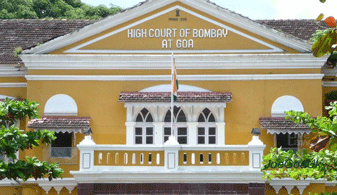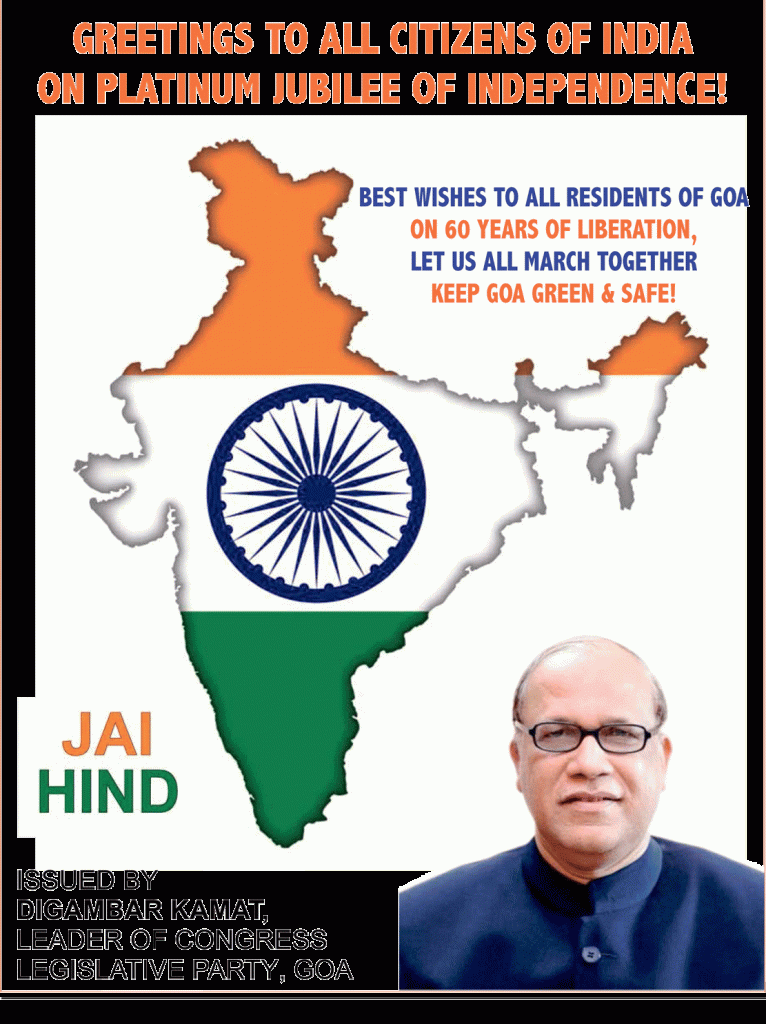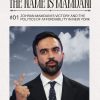Goa is abuzz with excitement as vintage bike and car owners, users, collectors and fans are decking […]

SC ACCUSES LAWYERS OF TERROR TACTICS!
Aug 14- Aug 20, 2021, INFOCUS August 13, 2021OVERLOAD: Judges in both district and high courts are overloaded with lawyers submitting huge piles of documents and engaging in long winded arguments.
By Advocates Vinayak Porob, Baggio Monteriro, Sanket Mahambre
The Supreme Court recently asked senior advocates not to terrify them with petitions running into thousands of pages. In a recent case, the papers placed in the court had to be transported by trucks to the residence of the judge!
THE Supreme Court, stripped a veteran lawyer from Gujarat of the senior advocate designation, following the contempt proceedings initiated against him by the Gujarat High Court in a rare and special order. He was directed to advance oral arguments by confining it to only 30 minutes and submissions on law in writing to only three pages.
LIMIT ARGUMENTS
In this respect the apex court considered several factors while regulating the arguments to be advanced in the open court and by posing a question: Which country in the world would allow lawyers to argue a case for hours and days together? It held that the time has come for lawyers to change their habits and restrict their arguments to only 30 minutes than the normal course of arguments which proceed for hours and days.
The apex court cited the example of England and remarked that even in England the practice of arguing for hours and days is not followed. The bench while imposing this discipline on the advocates said, “Many times we find a 30 page synopsis filed for a 28 page writ petition. Lawyers must understand that in this kind of a hearing, how we can justify to a litigant whose appeal is pending for 10 years that some matters are being given priority and are heard for hours together.”

LIMIT TIME TO ARGUE
The lawyers appearing also brought to the notice of the apex court that in the Supreme Court of the United States also lawyers are given only 25 minutes to argue a case and five minutes to reply to the other side’s contention by referring to Rule 28 of the United States Supreme Court. It rules on oral hearing state that “Unless the court directs otherwise each side is allowed one-half hour for the arguments.”
DON’T PROLONG CASE
JUSTICE Kaul heading a three-judge bench in a recent judgement referred to Article 6 of the European Convention on Human Rights which recognized the right of fair trial and public hearing to be completed within a reasonable time. According to Hon’ ble Justice Kaul delay in judicial proceedings has been the bane of our country and hence there cannot be a refusal to part ways from old practices especially when they have outlived their purpose.
The Apex Court while passing the above judgement on July 8, 2021 considered the fact that as of July 2, 2021 in the Supreme Court itself there are 69,212 matters pending and of which 447 matters are constitutional bench matters. By considering the above Justice Kaul in his judgement said, “The time spent on routine matters leaves little time to settle legal principles pending before the larger benches that may have an impact down the line on the judicial system.”
Interestingly, Justice Kaul’s Court uniquely consists of a daily list of cases with a special instruction for lawyers, that “Parties to get ready with a short synopsis of not more than three pages each in the final hearing/disposal matters.” No doubt considering the pendency of the Supreme Court, the limitations imposed on oral and written synopsis is much warranted. However, the same trend we feel as a precedent cannot be followed or implemented in trial courts as the circumstances in trial courts, with respect to stages in a proceeding, are completely different to that of the Supreme Court. The original jurisdiction of the Supreme Court is to a limited extent being the ultimate appellate court of the country.
NO BARS ON EVIDENCE
THE limitation should be restricted only to the stage of arguments and not evidence or trial. It is extremely inconceivable that a particular time limit is fixed to cross-examine a witness, as there can be no time limit fixed in a case for cross-examination as the time required to cross examine differs from case to case. This is based on the facts and the circumstances of each case. The above judgement if followed in principle by the trial courts, extending it to the stages of evidence or trial, we personally feel injustice would be caused to litigants as cross-examination is a weapon to bring out the truth. Time cannot be a limit.
In order to examine the veracity of the testimony of witnesses recorded in examination-in-chief, there is a need to rebut or confront the said testimony by effective cross-examination which indeed, would include asking of several questions for which a time barrier would be the biggest hindrance. And, consequently, perhaps frustrating the very purpose of conducting cross-examination.
To get the truth out from the mouth of the witness the art of cross-examination has to be mastered and for which no time limit can be fixed. Pendency in the trial courts is also less to that of the Supreme Court and restricting evidence or cross-examination, by virtue of fixing a time limit, will frustrate the very purpose of the justice delivery system. Arguments with respect to matters not containing testimonies of witnesses, may be restricted however in cases where there are testimonies of several witnesses.
LAWYERS OBJECT TO CURBS
ARGUMENTS cannot be restricted by imposing a time limit. Similarly, pleadings of a party also cannot be restricted by number of pages, and as such we hope that there is no such precedent laid down by the Supreme Court, restricting the pleadings of parties. As the number of pages in the plaint and written statement and the paragraphs therein would differ from case to case, depending on the documents, facts and circumstances of each case.
To actually ascertain the truth a presiding officer deciding the case has to judicially analyse and examine the entire case and for which effective and substantive cross-examination of witnesses is necessary, as the truth can be brought before the court only by subjecting the witnesses and parties to effective cross-examination. Justice to a party cannot be imparted within half-an-hour in cases where people’s life and liberty is at stake. In sensitive matters, restricting arguments by fixing a time limit, would amount to curtailing one’s right to express oneself while in search of justice.
Speedy disposal of a case should not be at the cost of justice, as presenting an incomplete case due to time barrier can frustrate the litigants and lead to injustice. Therefore, we hope that time limit or time barrier is only confined to the Supreme Court and not to the trial courts. Restrictions by fixing time limit on arguments or evidence, can adversely affect the quality of advocacy, as in many cases of original jurisdiction it is impossible to conclude arguments or evidence within a particular framework of time.
Many times in trial courts there are newly appointed presiding officers presiding and in such courts, experienced senior advocates arguing at a length can surely assist the newly appointed presiding officers in improving their skills of interpretation of law. This is very crucial to ensure justice.
TRIAL COURTS DIFFERENT
THE apex court many times is not enlightened to realities, difficulties and circumstances faced by advocates and litigants in the trial court. The fact that many a times after advancing oral arguments in a case for months, judgments are not passed, and sometimes before the judgement is pronounced, judges/presiding officers get transferred. As a result the matter has to be re-argued before the successor, which point is not brought to the notice of the apex court. As such we feel unfortunately that advocates are at the receiving end and judges and presiding officers as usual get away.
We personally feel that injustice is caused to advocates and parties in whose cases final arguments are heard and judgements are not pronounced immediately within a particular frame work of time. As there is no time limit fixed authoritatively to pass a judgement, no action is taken against a judge for not pronouncing a judgement within a particular frame work of time, after hearing final arguments.
STRICT COMPLIANCE PLEASE
IN MANY cases before the trial courts and for several months, orders are not passed, and as such we feel some imperative directions should be issued to be strictly complied with in order to fix a time limit to pass orders after hearing arguments. From the turn of events, it appears that in comparison to the other members of the system, advocates are always treated as second class citizens and are always questioned. Advocates are bound by moral and legal responsibility of answering their clients, which fact is ignored while holding advocates responsible.
The main aim of the Supreme Court in restricting arguments and synopsis is to reduce the time in disposal of cases and as such the SC being alive to it, we hope issues directions to presiding officers of the trials courts to pass orders within a particular frame work of time. This will go a long way in avoiding delay in delivering justice. We also further hope that the directions if at all issued be monitored for strict compliance, as the plight of lawyers practicing in the trial court, has to be considered at some point of time. Or else the profession of advocacy will no longer remain a profession but will be a punishment of sorts.
(This article is written jointly by Adv. Vinayak D. Porob, Adv. Baggio P. Monteiro and Adv. Sanket S. Mahambre having office at Mapusa-Goa and is their personal opinion.)















